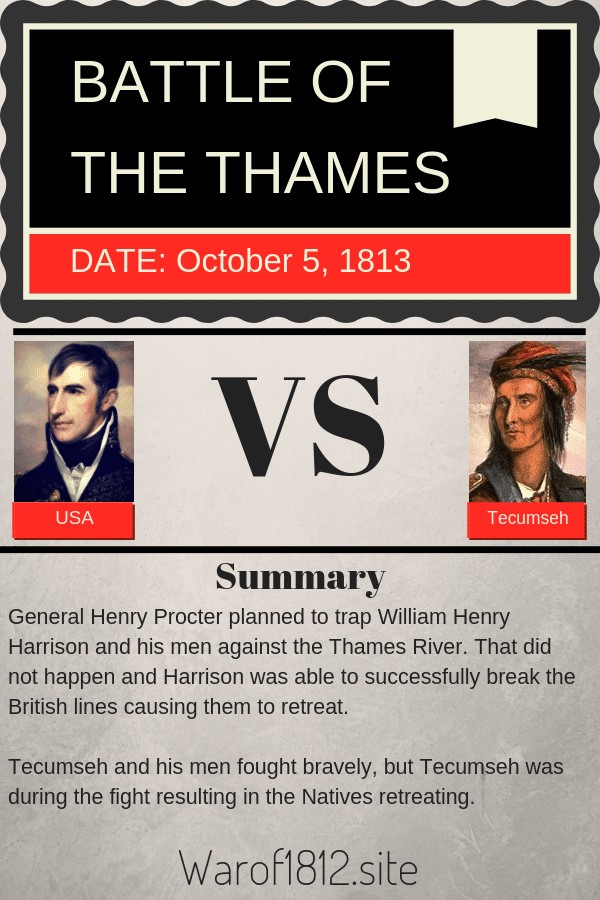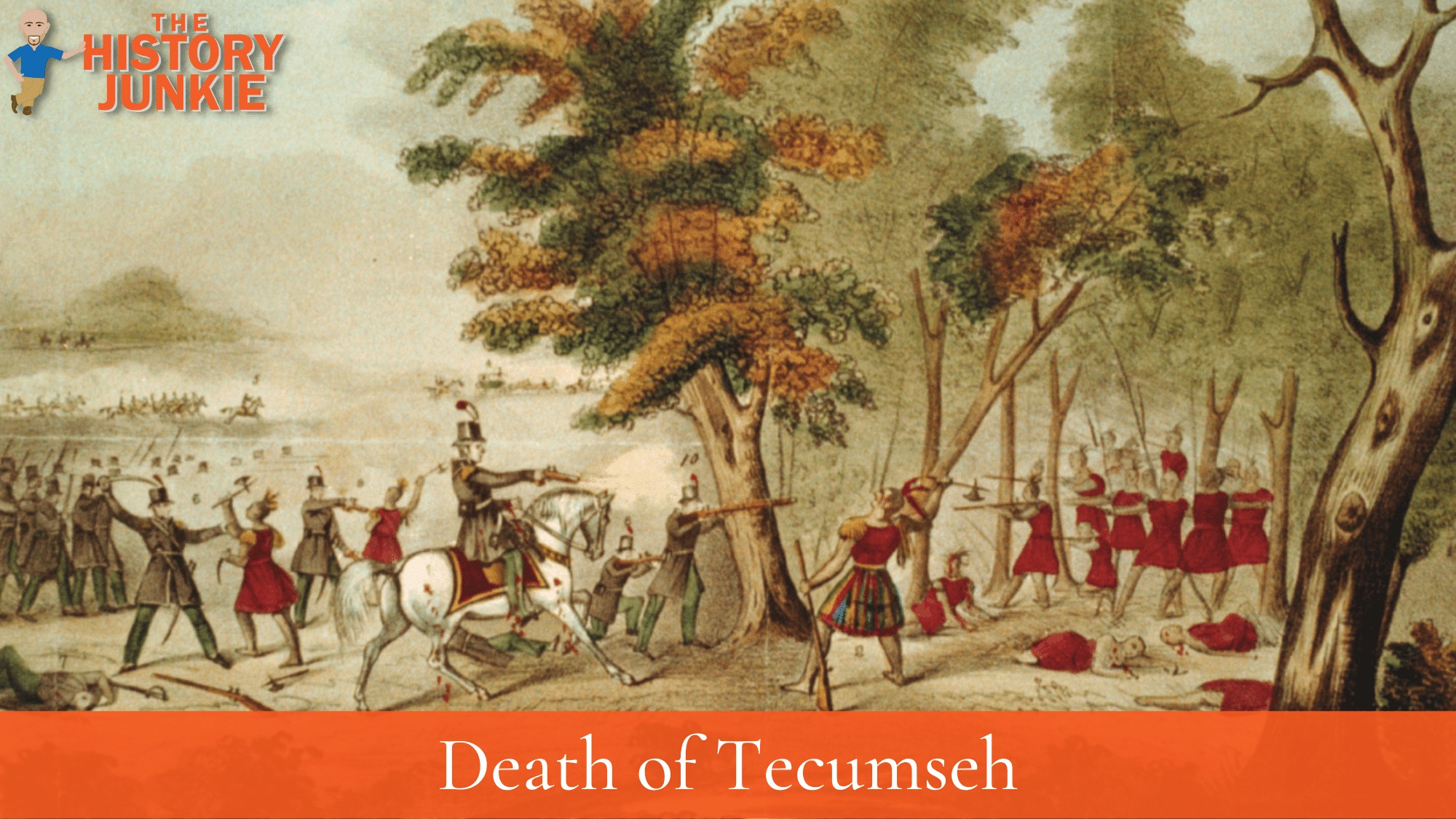The Battle of the Thames was a decisive American victory against the British and the Native American alliance led by Tecumseh. The battle claimed the life of Tecumseh and all but ended Native American support for the British during the war. It elevated the already popular General William Henry Harrison to national hero status.

Prelude to the Battle of the Thames
After General William Hull's failure at the Siege of Detroit, the Americans saw a dip in morale. The Native Americans became more aggressive towards the settlers, and American morale fell.
However, General William Henry Harrison was one of the few American Generals who had seen success against the British and their allies. He was not intimidated by their tactics and could be brutal when he was victorious in battle. He had seen success at the Battle of Tippecanoe and had held off the British during the Siege of Fort Meigs.
Slowly, the Americans started to see some success around the Great Lakes. They had successfully driven the British out of York and then decisively defeated the British Navy at the Battle of Lake Erie.
After these American victories, the British supply line was cut off, and they were forced to leave Detroit. General Harrison caught up with The British and the Native American alliance led by Tecumseh on the Thames River.
The Fighting

He planned to trap Harrison on the banks of the Thames, driving the Americans off the road with cannon fire, but he had made no attempt to fortify the position.
Tecumseh's men formed a line in a black ash swamp on the British right to flank the Americans. Tecumseh rode along the British line, shaking hands with each officer before rejoining his warriors.
General William Henry Harrison ordered James Johnson to make a frontal assault on the British line. He did and broke through, which disheartened the British. General Procter and his men fled, leaving their Native American allies to fight the Americans alone.
Tecumseh and his alliance remained and carried on fighting. Johnson charged into the Indian position at the head of about 20 horsemen to draw attention away from the main American force, but Tecumseh and his men answered with a volley of musket fire that stopped the cavalry charge.
It was during this exchange that a bullet ended the life of Tecumseh.
With Tecumseh's death, the Native Americans retreated.
Aftermath
The Battle of the Thames ended any penetration the British had into the northern United States, but more importantly, it ended the alliance between the British and the Native Americans.
Without Tecumseh's leadership, the alliance of Indian tribes would not trust each other and could not unite against a common enemy. Remnants of these tribes fought in other actions but never reached full strength again.
General William Henry Harrison signed an armistice with the Native American chiefs and ended much of the fighting. The battle would also add to his legacy.
